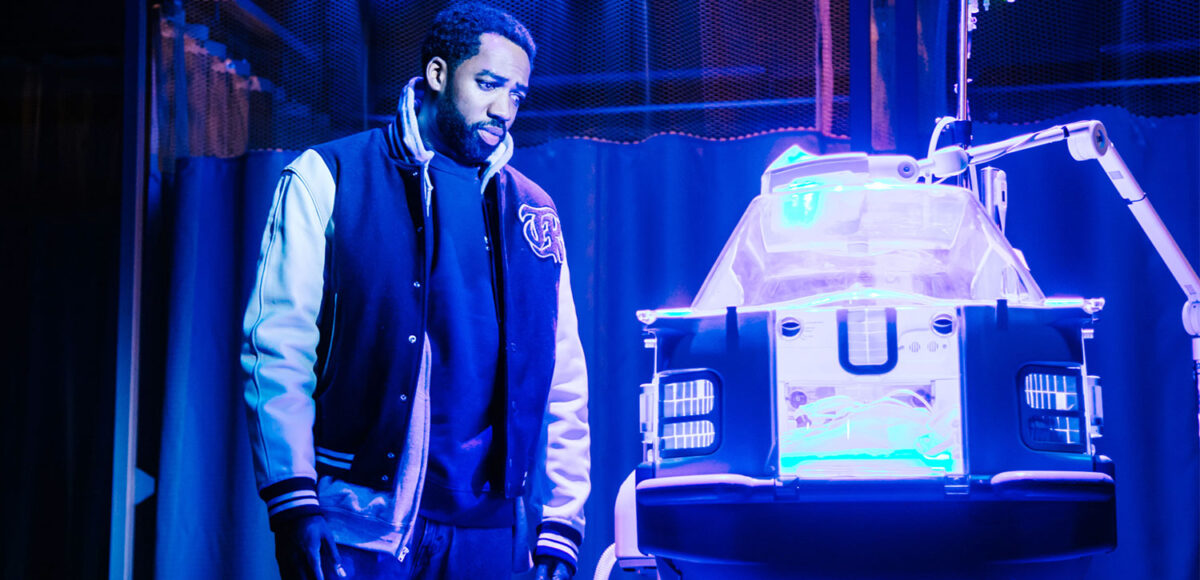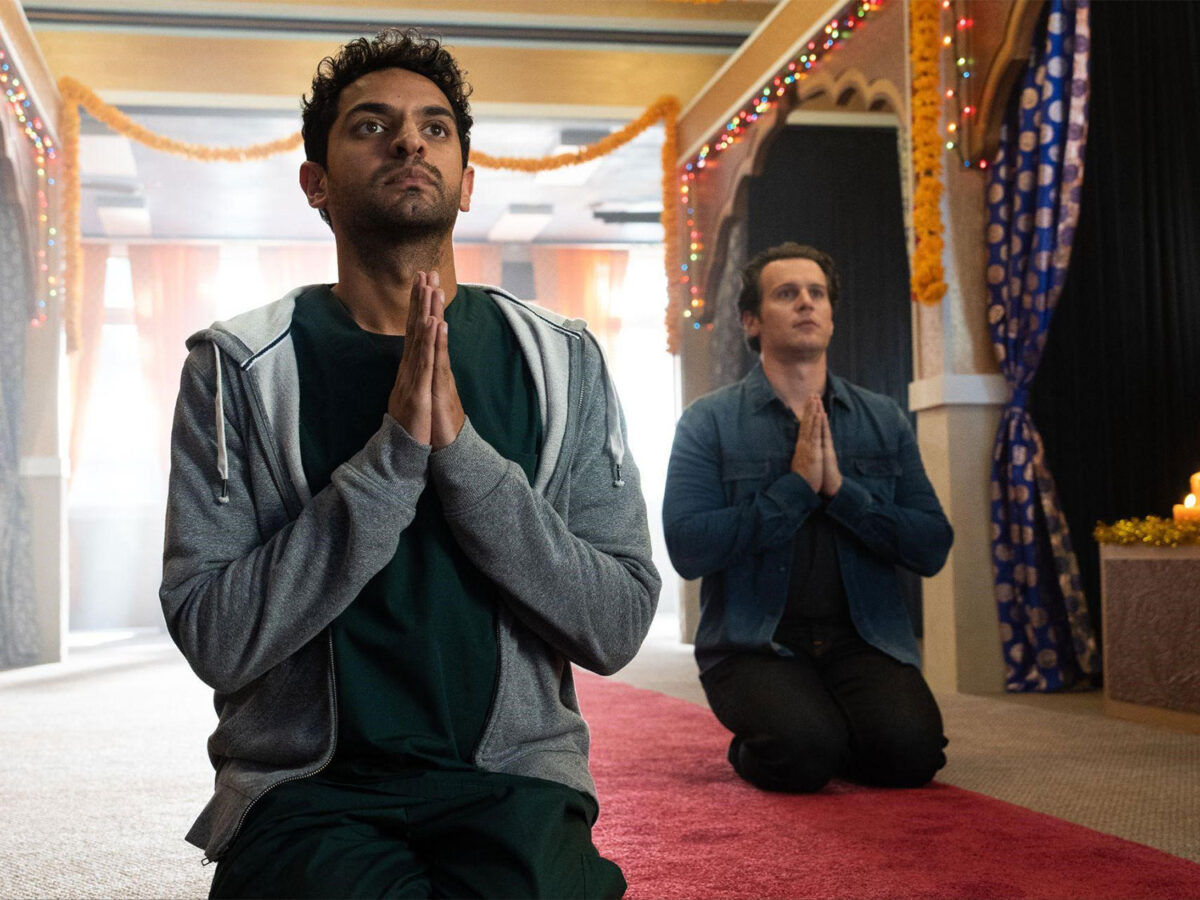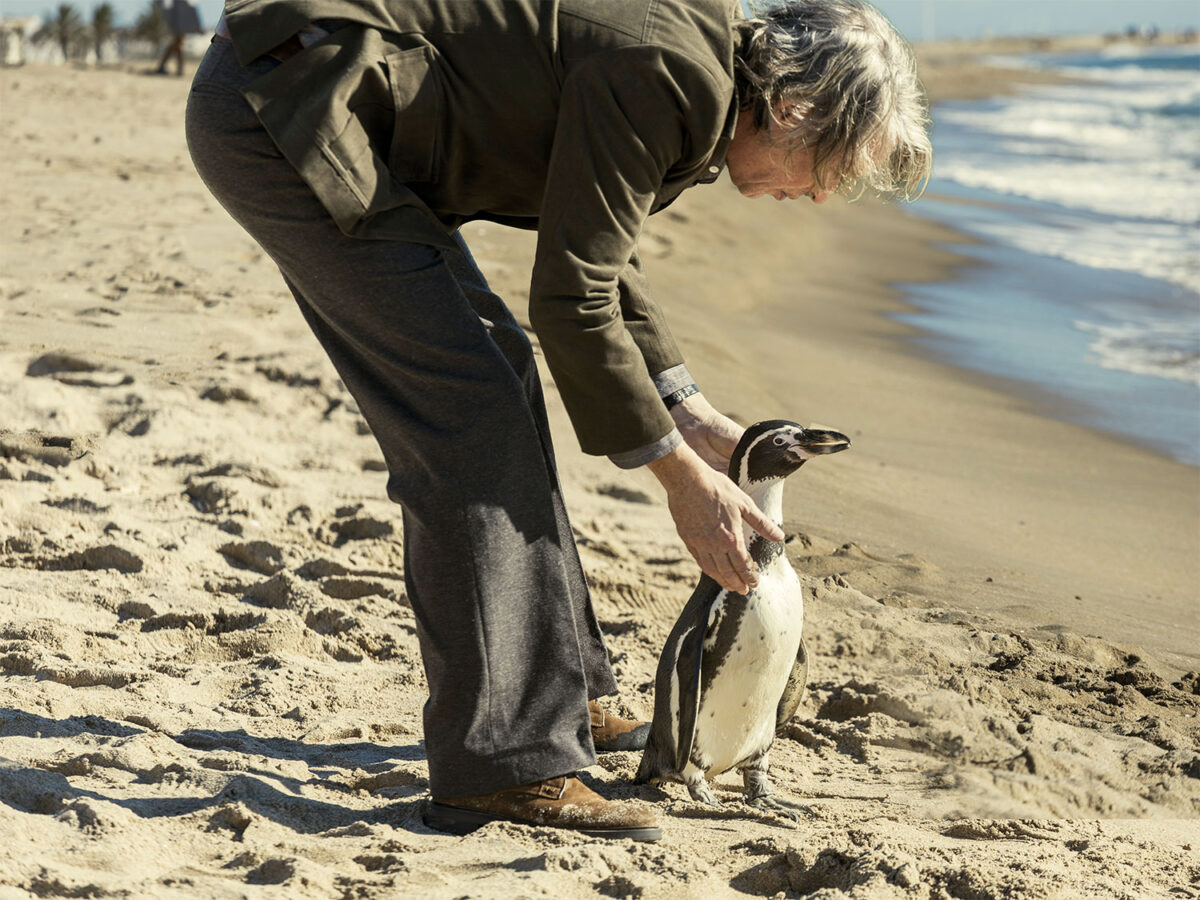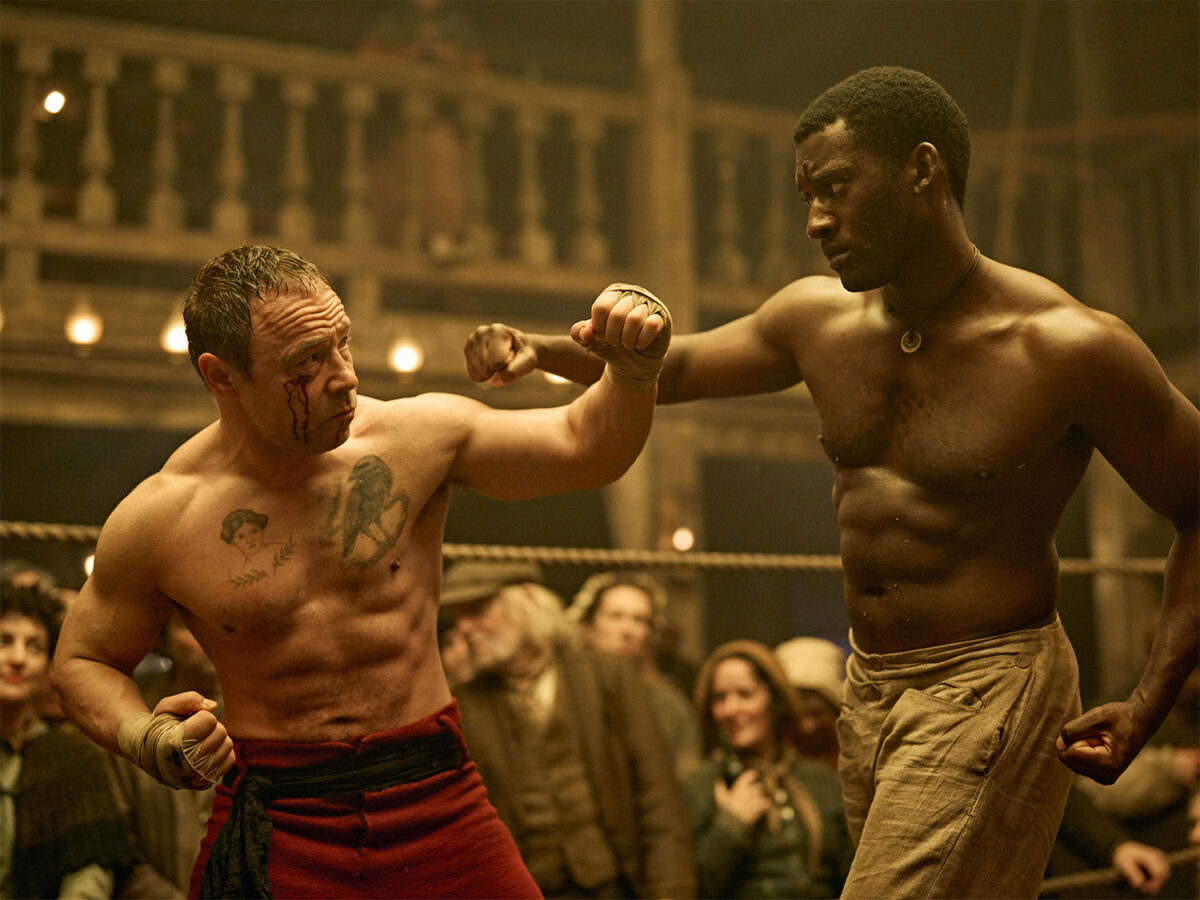Like most people, I love a surprise, and nothing is more pleasing than discovering something new and engaging. I had no expectations when I entered the Geffen Playhouse to watch their new play “Tiny Father.” Written by Mike Lew, directed by Moritz Von Stuelpnagel and starring Tiffany Villarin and Maurice Williams, I had heard of none of them. Some of that is on me because each of them had great credits, but my expectations weren’t sky high. It didn’t take long for that to change.
Opening on a nurse puttering around in a neonatal intensive care unit (NICU), it is the night shift and Caroline is a model of efficiency as she monitors the video screens, tubes and bassinets of her micro charges. In walks Daniel, frazzled and slightly disheveled. One of these charges is his, technically. He and Yuki were friends with benefits, more information than Caroline needed. The pregnancy was accidental. She wanted the baby; he didn’t. End of story, or so he thought. Earlier that evening, she called out of the blue. She needed to go to the hospital and could he take her? It couldn’t be the baby because she was only six months along. But it was and surrounded by a crack medical team, the baby, weighing barely 2 pounds, was delivered. Mom, on the other hand, was still struggling. With Yuki still in surgery, Daniel decided to take a peek at his daughter, wanted or not. Full of tubes and probes and needles, all ensconced in a clear plastic box attached to monitors, lights and buzzers, the life form inside is barely visible.
The very essence of calm, Caroline takes him in hand. She explains what is being done and how the team is working to improve her odds of survival; not a sure thing. Daniel, poleaxed by what seems to him to be an avalanche of information, is completely uprooted when he finds out that Yuki didn’t survive the childbirth. Daniel is now on his own. How he eventually blossoms into a new version of himself is what this two-handed piece is all about. Caroline is always the advocate for his baby and makes him step away and look at the positives, of which there are many. While Daniel deals with the real world consequences of his casual affair, he begins to appreciate the gift he has been given.
Oddly enough, this play isn’t about the baby and her recovery; it’s about Daniel and his growth. Daniel’s interactions with Caroline, his sounding board, run the gamut from perplexed to angry to fraught to gentle, caring and observant. In the course of a short evening, we witness Daniel, on the cusp of rejecting the unwanted responsibility, growing into a deeply thoughtful human being, right before our eyes. His initial curiosity only grows with time. What is this little creature who resembles the monster of his favorite video game?
Caroline, more Florence Nightingale than Nurse Jackie, has her own issues that both humanize her and worry him. She hates the night shift and feels she’s been unfairly singled out. She has her own infant at home and a husband who chafes at her suggestions. It may all be about control for them both because neither of them have control over what’s going on in their lives and both must learn what’s most important and let go of the rest. A lesson for us all.
Daniel is not a big fan of rules and the NICU has its own set, all dictated by hospital protocol, starting with the mandatory wrist band. Caroline defends the hospital’s practices, maintaining that they fully advocate for his child. Daniel, as he grows into his role, begins to believe that some of the care is expedient rather than compassionate. It is a masterstroke on the part of Lew that you will bring your own personal feelings into this dilemma.
The specter of systemic racism is raised but it’s difficult to see and support. Is Daniel imagining different treatment because he is Black? It’s possible that it’s there but hard to prove. There is no separate set of rules applied to him and his child. Caroline maintains that her horrible schedule is due to a supervisor who is punishing her for having taken maternity leave; Daniel raises the possibility that she is being relegated to the bad shift because she is Asian American. Again, impossible to prove. Lew wants these questions to lurk in the background, questionable though they may be.
The production design is outstanding with the NICU monitors, alarms and incubator pitch perfect. It is, however, the very simplicity of displaying the passing time by day numbers, flashed on invisible screens stage left and stage right (i.e., day 1, day 15, day 125, etc.), that helps track the progress in the baby’s recovery and Daniel’s growth. As director, Moritz Von Steulpnagel keeps things moving smoothly, wringing the necessary emotional high and low points effectively. As mentioned throughout, Mike Lew, writing from personal experience, has written some of the best character development you will ever witness, letting the audience grow with Daniel from the first scene to the last. It’s a very upbeat play because the focus is on recovery and renewal.
“Tiny Father” is very cast-dependent and Tiffany Villarin as Caroline and Maurice Williams as Daniel were ideal in their roles. Although Caroline is a supporting role, Daniel’s growth is played against a backdrop of Caroline’s work, perfunctory while also exemplary. Questions are asked and rarely answered, leaving it up to you and what you are seeing and hearing over the course of the play’s time period. Villarin lets us see the frustrations and hopes in her personal life that gradually infiltrate her work. She is an actress of empathy and warmth who does much more than play background to her partner on stage.
Maurice Williams is a revelation. The role of Daniel is incredibly difficult and would, no doubt, drown a lesser actor. Williams takes us on his journey, as we gradually become part of his thoughts and emotions. His Daniel, throughout, is someone we want to stay with and continue to see grow, because he will, no doubt, continue on that path. Williams, also a talented writer, is someone I would like to see again where his personal charisma works magic. He deserves a major career on stage and screen.
Now playing at the Geffen Playhouse through July 14. Performances take place Wednesday through Sunday with matinees on Saturdays and Sundays. Runtime is 90 minutes without intermission.
Geffen Playhouse. 10886 Le Conte Ave., Los Angeles 90024
Neely Swanson spent most of her professional career in the television industry, almost all of it working for David E. Kelley. In her last full-time position as Executive Vice President of Development, she reviewed writer submissions and targeted content for adaptation. As she has often said, she did book reports for a living. For several years she was a freelance writer for “Written By,” the magazine of the WGA West, and was adjunct faculty at USC in the writing division of the School of Cinematic Arts. Neely has been writing film and television reviews for the “Easy Reader” for more than 10 years. Her past reviews can be read on Rotten Tomatoes where she is a tomato-approved critic.







